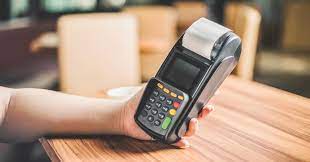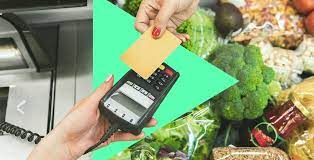A merchant category code (MCC) is a four-digit identifier granted to a company by a credit card network. The MCC categorizes merchants, and this category is crucial since various kinds of purchases may result in varying incentive rates.
As a customer, knowing the different merchant categories will assist you in getting the most out of the benefits your credit card offers. For instance, some grocery shops offer high-priced gadgets, yet the transactions at such businesses may still be classified as food purchases. If you have a cash-back card that gets bonus points on groceries, using it might mean more cashback than if you made the same purchase at another shop. This is because bonus points are earned only on purchases of groceries.
While the categories of the vast majority of retailers are straightforward, some could take you by surprise. For example, the Costco retail establishment is not classified as a supermarket but rather as a wholesale retailer. This indicates that purchases made at Costco will not qualify for the higher grocery rewards rate, should your card provide such a rate.
Why Merchant Category Codes Matter
Even while incentives are the major method by which MCC codes may influence cardholders, this does not mean they are the only ones. This is why it is essential to have a solid understanding of how they function and how to make the most of that information:
Rewards rates
MCC codes are mostly irrelevant for credit cards that provide a consistent rate of rewards for all purchases. On the other hand, if your card comes with rotating or tiered bonus rewards system, this plays a key part in determining how much you earn on the purchases you make regularly.
It's unlikely that most MCC codes will impact the points rate you're currently receiving on credit cards. However, depending on where you purchase, you can earn a lesser points rate on typical bonus reward categories such as grocery, petrol, traveling, and eating out without even realizing it. These categories include:
For instance, many credit cards provide bonus benefits for acquisitions made at supermarkets and food shops. However, even though food items may be purchased at merchants such as Walmart and Target, these establishments are only sometimes considered grocery stores or supermarkets.
As an alternative, the awards may be labeled as being for wholesale clubs or discount businesses. If you are using a card that earns bonus points at grocery shops, you may be dissatisfied if you attempt to receive the bonus rate at multifunctional merchants of the sort we are talking about.

Statement credits
You may get a credit on your credit card statement if you use a participating card for qualifying transactions. Credits on certain credit cards are only redeemable at specific retailers or on specific types of purchases, including airline incidentals or the TSA Pre® or Global Entry® application fee.
However, other cards might grant credits in a more general category, such as travel. If this is the case, you may familiarize yourself with the coding of your purchases to ensure that you are given credit for the transactions you want.
Rewards redemption
If you have one of a select few general travel credit cards, you can redeem your credits or miles by purchasing the card connected to travel and then using your rewards to receive a statement credit against the transaction. Because the criteria for what constitutes a "travel purchase" might differ from card to card, knowing how MCC codes operate will help you get the most out of your benefits.
Do All Credit Card Networks Classify Businesses Using The Same Criteria?

Sadly, the answer is no. Even though major networks like Visa, Mastercard, and American Express utilize the same merchant category numbers, there are situations when these networks designate retailers differently.
For instance, one issuer would consider Walmart a food shop while the others wouldn't, and whether or not they do would likely depend on whether or not it was a Walmart Superstore or a standard Walmart. You may examine your accounts to see which earning rate you are receiving on purchases made at certain establishments. Credit card issuers do not often disclose how they classify companies, but you can find out which earning rate you are getting on those transactions.
When advertising their earnings rates, the networks may mix categories in various ways, making things even more complicated. For category, some credit cards come with bonus points on combination categories, such as "food and beverages," that include purchases made at supermarkets, restaurants, and even meal delivery services. Other cards differentiate between restaurants and grocery shops by providing a distinct set of benefits for each spending category. Another example would be charges made for taxis and ridesharing services, classified as transportation by certain credit cards but as travel by others.







